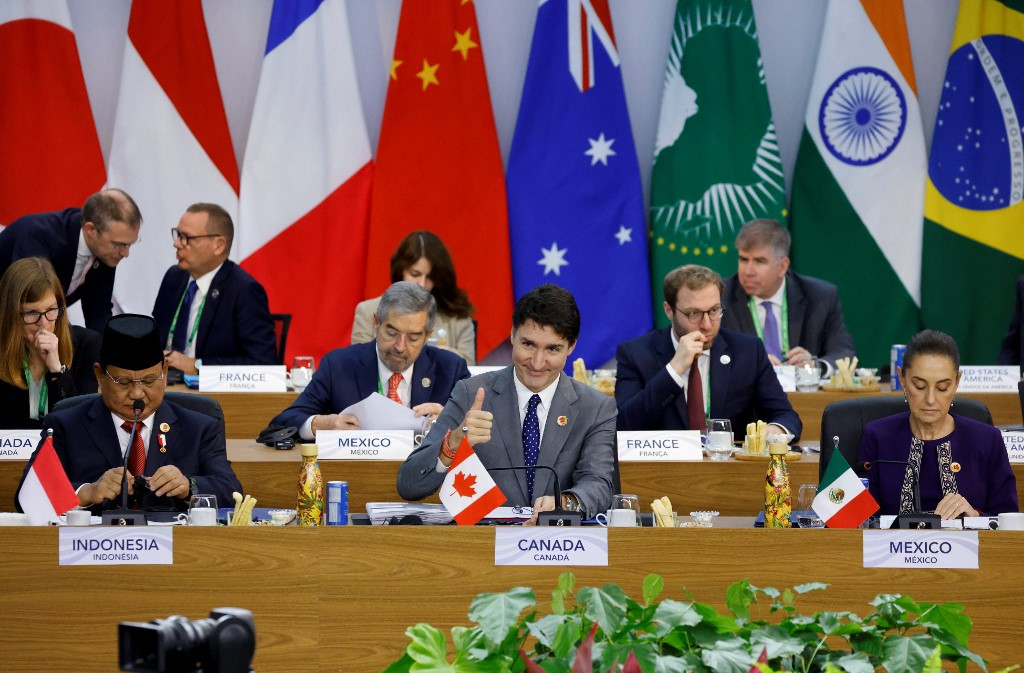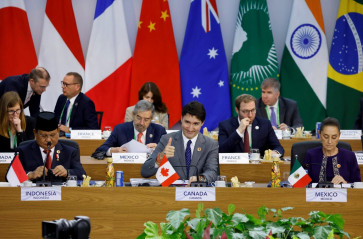Popular Reads
Top Results
Can't find what you're looking for?
View all search resultsPopular Reads
Top Results
Can't find what you're looking for?
View all search resultsIs Beijing undermining Indonesia’s free and active foreign policy?
It is no exaggeration to conclude that by signing the joint statement, on paper Jakarta has signed up to Chinese-style modernization and Beijing’s foreign policy ambitions, while disregarding its own.
Change text size
Gift Premium Articles
to Anyone
O
n Oct. 20, Prabowo Subianto was inaugurated as Indonesia's eighth president. A former defense minister from 2019 to 2024, Prabowo has vowed to continue the country’s long-standing free and active foreign policy, emphasizing non-alignment and strategic autonomy.
On Nov. 21, at the celebration of 25 years of The Habibie Center in Jakarta that I had the honor of attending, Darmansjah Djumala, former Indonesian ambassador to Austria, Poland and the United Nations explained that a “free” foreign policy means that Indonesia has the capacity to determine its own positions on international issues without external pressure. “Free does not mean neutral”, he clarified. An “active” foreign policy means Indonesia pursues its priorities based on its own national interests, he explained.
In other words, Indonesia has followed its own path and will continue to do so under Prabowo, while balancing relations with major powers. No doubt, with the weight and strategic importance that Indonesia believes it already has, aspiring to exercise agency as a middle power is the right ambition to pursue. If Jakarta lives up to its commitment, this will not only benefit its people, but it will amplify Indonesia’s voice and help reduce regional tension.
Yet, appreciating the free and active foreign policy discourse through the lens of the joint statement that the People’s Republic of China (PRC) and Indonesia signed on Nov. 9 in Beijing suggests a very different reality. It is hard not to see the gap between Indonesia’s narrative and practice, which risks limiting its strategic space while neglecting the wellbeing of its people for generations to come.
Signing the joint statement was not a good start for Prabowo’s free and active foreign policy, as it is seen by many across the Indo-Pacific as contradictory and dangerous. The Indo-Pacific is a region where most countries struggle with the same challenge, namely to effectively push back against pressure to choose sides. With an unpredictable American global engagement under the Trump administration and a more assertive China, closing the discourse-practice gap has just become more challenging for Jakarta.
It is no exaggeration to conclude that by signing the joint statement, on paper Jakarta has signed up to Chinese-style modernization and Beijing’s foreign policy ambitions, while disregarding its own. The text is built around the slogans Beijing has skillfully leveraged in its bilateral agreements signed with developing countries. While projecting the PRC’s identity as a “major developing country”, Beijing has also sought to create a sense of belonging, claiming to share roots with countries that are actually still in development.
Indonesia is not the only country in Southeast Asia whose leadership has, eagerly or carelessly, walked into a relationship that has primarily served China’s core national interests. Others in the region have ended up on the same path, while justifying their decision with the high rhetoric of strategic autonomy, stressing that they don’t want to choose sides.



















